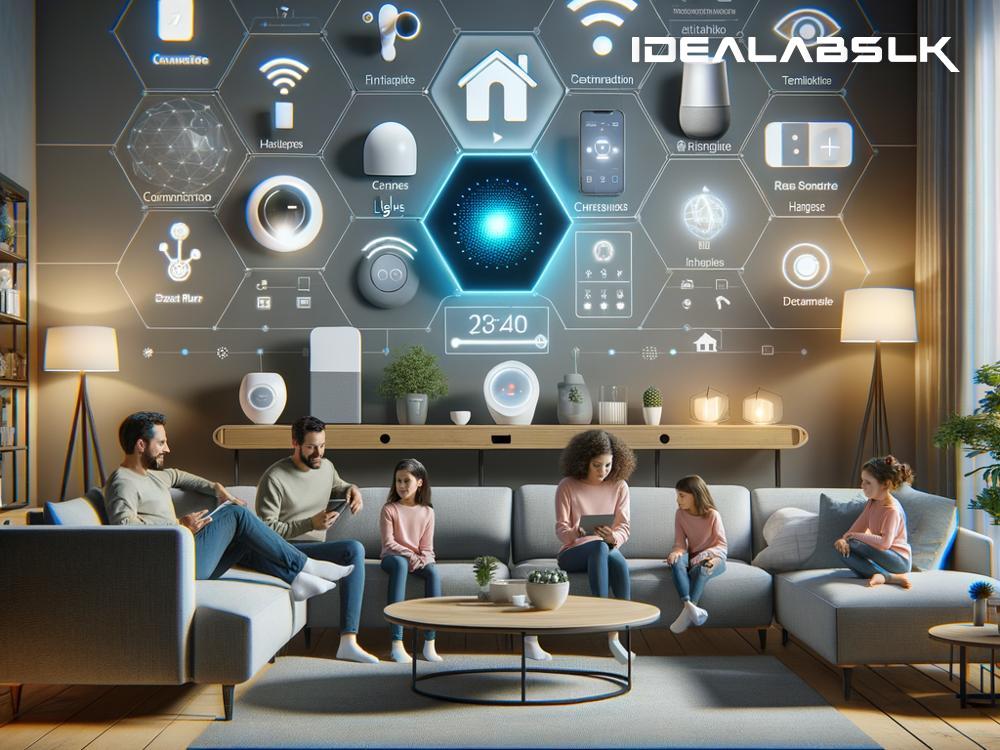The Rise of Smart Home Technology: Making Life Easier, One Device at a Time
In the last few years, something remarkable has been happening in homes around the world. Things that used to be the stuff of science fiction — like lights that turn on with a simple voice command, thermostats that learn your schedule to save on heating, or fridges that remind you when you're low on milk — are now becoming a part of our everyday lives. This revolution in how we live at home is thanks to the rapid rise of smart home technology.
So, what is smart home technology? Simply put, it's a bunch of devices and systems that can connect to the internet and be controlled remotely. Whether through a smartphone app, a voice command, or automation, these devices offer unprecedented control over the home environment, making life more convenient and, in many ways, safer.
Why Are Smart Homes Becoming So Popular?
There are a bunch of reasons why smart homes are becoming more and more common. Perhaps the biggest one is convenience. Imagine controlling your lights, thermostat, and even your coffee maker from your smartphone, without needing to leave your cozy bed on a chilly morning. Or think about the peace of mind that comes from being able to check your home security cameras from anywhere in the world.
But it's not just about convenience. Smart home technology can also make your home more energy-efficient, saving money in the long run. Smart thermostats, for instance, adjust the temperature based on your behavior and preferences, reducing wasted energy. Smart lights can dim or turn off when no one is in the room. All these small changes add up to a noticeable difference in your energy bills.
Another big draw is the potential for increased safety and security. Smart locks can alert you when someone enters your home, and smart cameras allow you to monitor your home remotely. Even smoke detectors have gotten smarter, capable of sending alerts to your phone if there's trouble, whether you're home or away.
How Smart Home Technology is Changing the Way We Live
The rise of smart home technology is not just about adding convenience to our lives; it's fundamentally changing the way we interact with our living spaces. Homes are becoming more responsive, learning from our habits and behaviors to serve us better. Imagine your home knowing you're about to arrive and warming itself up, turning on the lights, and playing your favorite music as you walk through the door. This level of personalized automation was unthinkable just a decade ago.
Moreover, smart homes are also becoming a critical component of the broader concept of the Internet of Things (IoT), where everyday objects are connected to the internet and each other. This interconnectivity opens up possibilities for more integrated and intelligent systems that can do things like optimizing energy consumption across all your devices or automatically ordering groceries when your fridge detects you're low on essentials.
Getting Started with Smart Home Technology
Diving into the world of smart home technology might seem daunting at first, but it’s actually easier than you might think. You don't need to outfit your entire home with gadgets right away. Many people start with a single smart device — like a smart speaker or a smart bulb — and gradually add more as they see the benefits.
The key is to choose devices that work well together. Many smart home devices are compatible with major ecosystems like Amazon's Alexa, Google's Assistant, or Apple's HomeKit. Picking one ecosystem can help ensure that your devices work seamlessly together, making for a smoother, more integrated experience.
Looking Ahead: The Future of Smart Homes
As technology continues to evolve, the potential for smart home technology only grows. Future smart homes might include even more advanced features, like refrigerators that can order groceries for themselves, mirrors that offer health advice, or windows that tint automatically to save energy and protect your privacy.
But, beyond just adding new gadgets, the future of smart homes lies in making them smarter and more intuitive, capable of anticipating our needs and adjusting to our lives in real-time. As these technologies become more advanced and accessible, living in a smart home will move from being a luxury to a new standard of living that's within reach for everyone.
The rise of smart home technology is an exciting glimpse into the future, a promise of homes that are not only more connected and convenient but also more personalized and responsive to our needs and preferences. As we stand on the brink of this new era, it's clear that the home of the future is not only smart but also kind, understanding, and, most importantly, centered around us.

